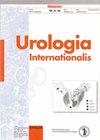Financial distress in testicular cancer survivors and its impact on cancer survivors´ quality of life in the German health care system.
IF 1.5
4区 医学
Q3 UROLOGY & NEPHROLOGY
引用次数: 0
Abstract
INTRODUCTION Testicular cancer accounts for the largest proportion of solid tumors in young adult men. With an average age of onset under 40 years and a relative 5-year survival of 97%, it is one of the prognostically favorable tumors. Little is known about the relationship between the financial burden and physical and emotional health of testicular cancer survivors. We examined the association between financial problems caused by cancer and the self-reported quality of life in a cohort-based sample of testicular cancer patients. METHODS A cross-sectional analysis of testicular cancer patients (n = 87, average age 39 years) was performed. Self-reported data were collected on demographics, income, wealth, cost-coping strategies, out-of-pocket costs, supportive medication compliance, quality of life and perceived social isolation. A multivariable regression model was used to examine the relationship between the degree to which cancer caused financial burdens and the patients´ reported quality of life. RESULTS The survey showed that, in addition to illness-related additional expenses, a disease-related loss of income can lead to severe financial disadvantages and impair quality of life. The study data show that concerns about the economic situation can increase the burden on patients which already results from cancer diagnosis and therapy. In this patient cohort, 32% reported financial stress. CONCLUSION Financial distress affects testicular cancer survivors in unique ways. To provide support, health professionals should consider survivors´ developmental life stage to understand their financial stress, and ultimately, to improve quality of life.德国医疗保健系统中睾丸癌幸存者的财务困境及其对癌症幸存者生活质量的影响。
导言睾丸癌在青壮年男性实体瘤中所占比例最大。睾丸癌的平均发病年龄不到 40 岁,相对 5 年生存率为 97%,是预后良好的肿瘤之一。人们对睾丸癌幸存者的经济负担与身心健康之间的关系知之甚少。我们对睾丸癌患者(87 人,平均年龄 39 岁)进行了横断面分析,研究了癌症导致的经济问题与睾丸癌患者自我报告的生活质量之间的关系。收集了有关人口统计学、收入、财富、费用应对策略、自付费用、支持性用药依从性、生活质量和社会隔离感的自我报告数据。调查结果表明,除了与疾病相关的额外支出外,与疾病相关的收入损失也会导致严重的经济劣势并损害生活质量。研究数据显示,对经济状况的担忧会加重癌症诊断和治疗给患者带来的负担。在这组患者中,有 32% 的人表示有经济压力。为了提供支持,医疗专业人员应考虑幸存者的人生发展阶段,以了解他们的经济压力,最终提高生活质量。
本文章由计算机程序翻译,如有差异,请以英文原文为准。
求助全文
约1分钟内获得全文
求助全文
来源期刊

Urologia Internationalis
医学-泌尿学与肾脏学
CiteScore
3.30
自引率
6.20%
发文量
94
审稿时长
3-8 weeks
期刊介绍:
Concise but fully substantiated international reports of clinically oriented research into science and current management of urogenital disorders form the nucleus of original as well as basic research papers. These are supplemented by up-to-date reviews by international experts on the state-of-the-art of key topics of clinical urological practice. Essential topics receiving regular coverage include the introduction of new techniques and instrumentation as well as the evaluation of new functional tests and diagnostic methods. Special attention is given to advances in surgical techniques and clinical oncology. The regular publication of selected case reports represents the great variation in urological disease and illustrates treatment solutions in singular cases.
 求助内容:
求助内容: 应助结果提醒方式:
应助结果提醒方式:


